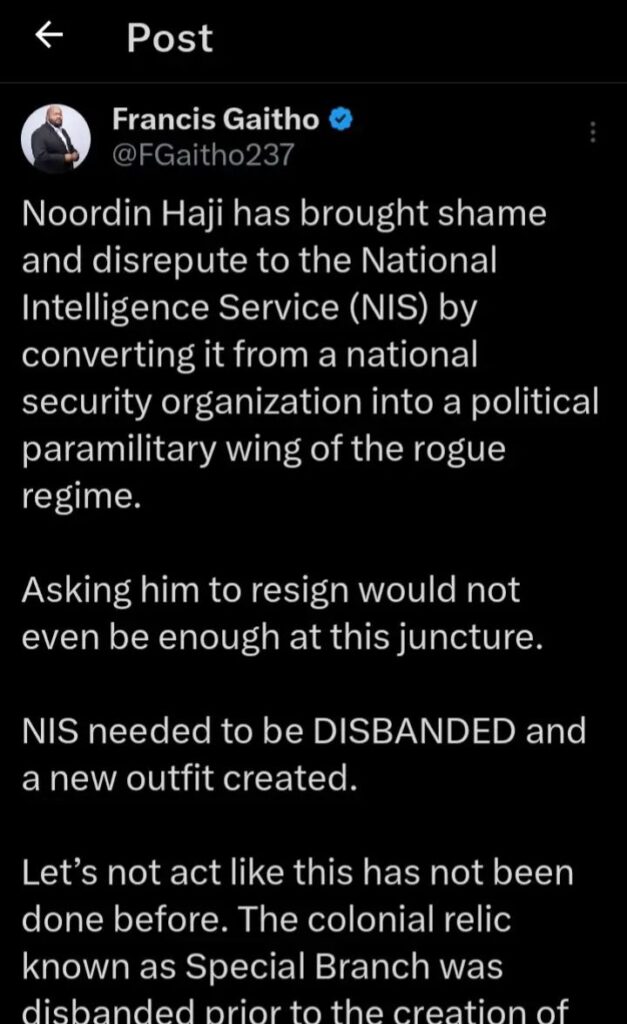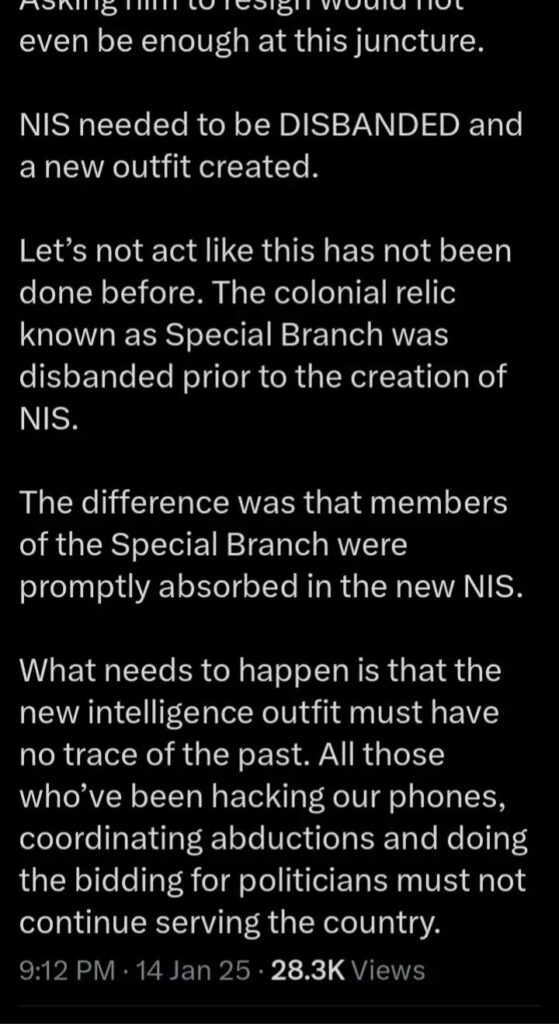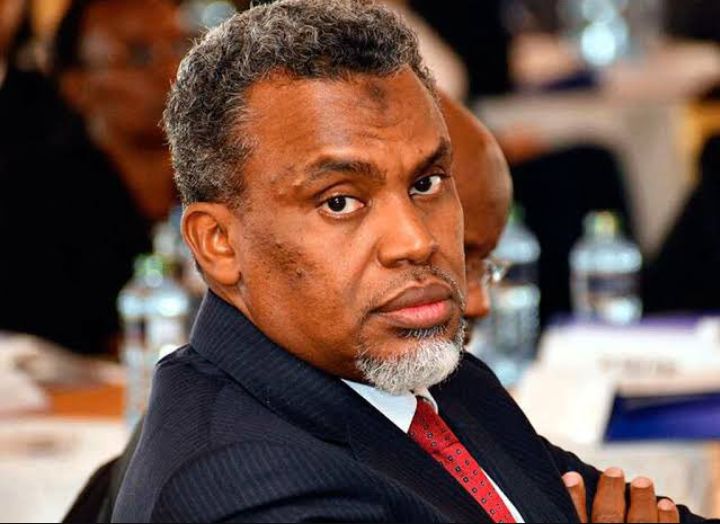The National Intelligence Service (NIS), Kenya’s primary security and intelligence agency, has come on the spot following accusations of being used as a political tool under its current leadership.
Critics, led by analyst Francis Gaitho, argue that NIS has deviated from its mandate of safeguarding national security and instead operates as a paramilitary arm of the government.
Gaitho claims that under Noordin Haji’s leadership, NIS has lost its neutrality, becoming a tool for political intimidation, including allegations of phone hacking, abductions, and actions favoring political agendas.
He believes such activities undermine public trust and national cohesion.
“It’s not enough to simply ask for resignations,” Gaitho said.
“The NIS has to be disbanded entirely. We need a fresh start with a new intelligence outfit that is free of past misconduct and political interference.”
Drawing comparisons to the dissolution of the colonial-era Special Branch in 1998, Gaitho highlighted how the NIS was created to replace its predecessor, which had been associated with oppressive practices during the colonial period.

However, he noted that many former Special Branch members were integrated into the NIS, potentially allowing old practices to persist.
“This time, it must be different,” he urged.
“The new intelligence agency must break completely from the past. Anyone involved in misconduct whether it’s phone surveillance, illegal detentions, or political manipulation should not be allowed to continue serving in any capacity.”
The call for reform comes at a time of heightened debate over the role of intelligence agencies in democratic governance.
Critics argue that such agencies must operate with transparency, professionalism, and accountability to serve the public interest.

If implemented, the proposal to dissolve the NIS and create a new intelligence body would mark an important shift in Kenya’s approach to national security.
While proponents see it as a step toward restoring trust and integrity, others caution against destabilizing an institution critical to counterterrorism and intelligence gathering.
As public discourse grows, all eyes remain on the government’s next steps, with many Kenyans demanding answers and accountability for the allegations against the NIS.





















Add Comment